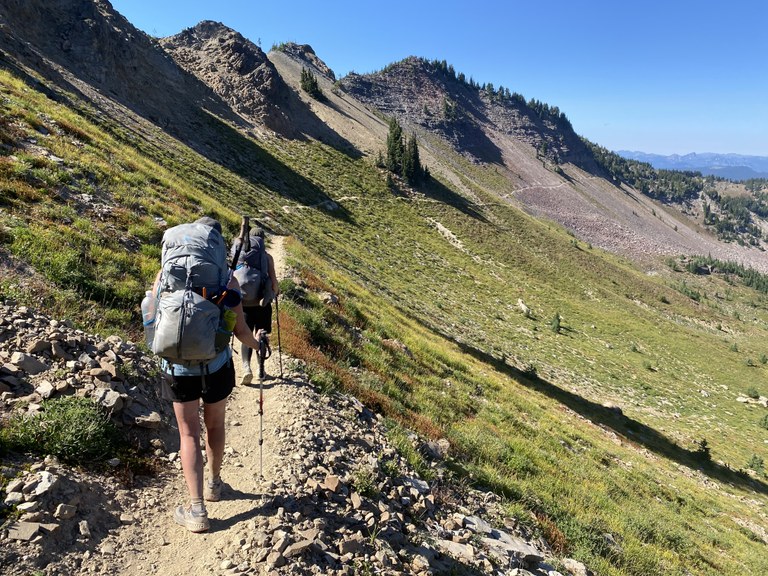Pack your patience and a trash bag this summer and fall
With national public lands stretched thinner than ever on staff and funding, hikers and trail users can help by taking extra care of the lands we all love. Here are a few ways you can help our shared lands and the people and organizations who work hard to protect them.
With national public lands stretched thinner than ever on staff and funding, hikers and trail users can help by taking extra care of the lands we all love, especially as the season wears on and the public lands staff are pulled into other duties, like fighting wildfires. Here are a few ways you can help our shared lands and the people and organizations who work hard to protect them.
Flex your planning and packing skills. It might be harder to know what conditions you’re getting into this year, especially if no one has posted a recent trip report. Choose a trip you feel confident everyone in your group can do safely, and go with a backup plan. Pack more than you think you need and plan for anything. You always intend to bring the Ten Essentials — this is the year to actually do it.

When you're heading out on trail this year, remember that land managers are short on staff and money. Be prepared for anything you might encounter. Photo by William Gevers on the Pacific Crest Trail.
Adjust your expectations. Once you arrive, expect fewer trailhead services. Bathrooms, vault toilets and backcountry toilets may not be serviced as frequently. If parking is full, it’s more important than ever to head someplace else rather than snarl up roads for emergency responders. On trail, anticipate more challenges — like trees down or bridges out — on familiar trails. If you get into trouble and need to call for help, there are fewer people to support search and rescue operations this year, so do everything you can to prevent accidents.
Be kind. The land managers left working on national public lands are doing their best to maintain trails and facilities while dealing with the challenges of reduced resources. Hikers and other public land users are navigating these changes, too. Show respect and patience for each other — especially for the folks working so hard to protect the water, habitat and trail experiences on our public lands.
Set the example of respect. See if you can go beyond the Leave No Trace ethos and leave the landscape better than you found it. Don't plan on any trash services at trailheads. Never put trash in a vault toilet. (Think of the actual human being who will have to crawl in and fish it out.)
On your hike, pack a trash bag and pick a few things up along the trail. When it’s no one’s job, it’s all of ours. (Plus, when there is less visible trash, people are less likely to litter.) Don’t feed wildlife, secure your food and keep pets on leash. Your example will set the tone for everyone.
Volunteer. You’re already someone who cares deeply about public lands and supports the work of Washington Trails Association. If you want to help out on trails, volunteer with an established trail maintenance or restoration organization. (Ad hoc trail maintenance by individuals can actually make things worse and use up limited resources.)
Advocate. Sound a steady drumbeat for trails with your federal representatives about the value of public lands.
File a trip report. This is a year when trip reports are going to matter more than ever, even on popular trails. So, if you’ve been meaning to post a trip report, there’s no better summer to take a few minutes after every hike and share the good, bad and ugly you’re spotting. Hikers — and land managers — are counting on you.


Comments